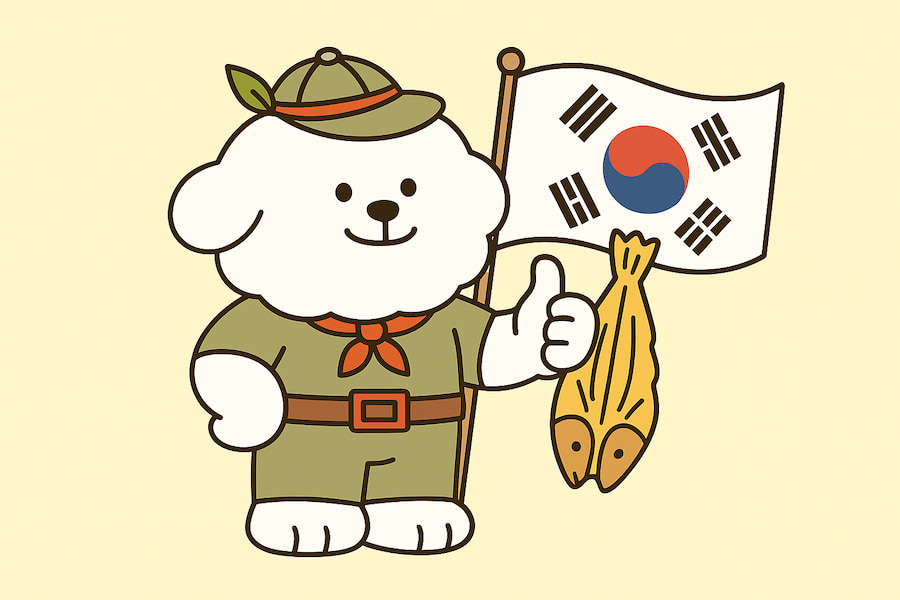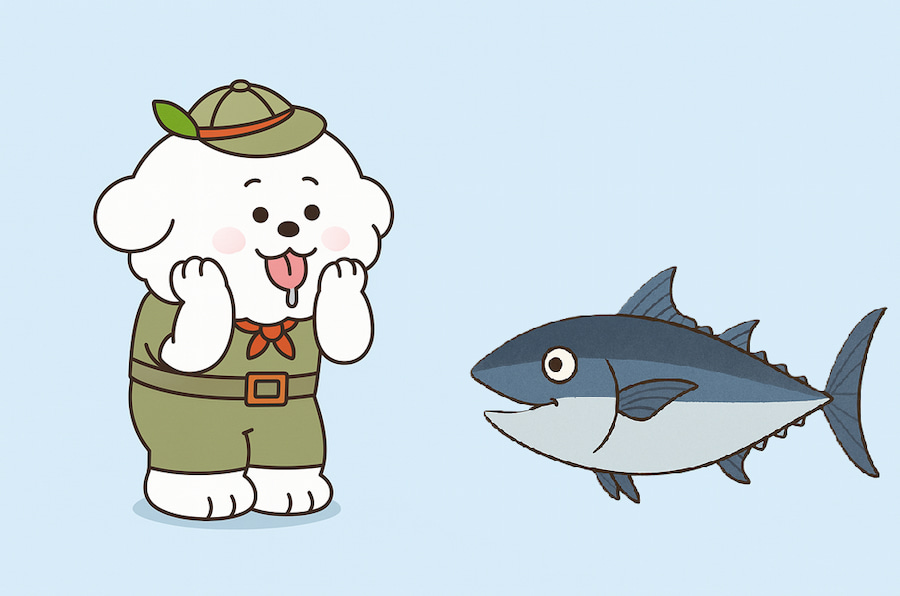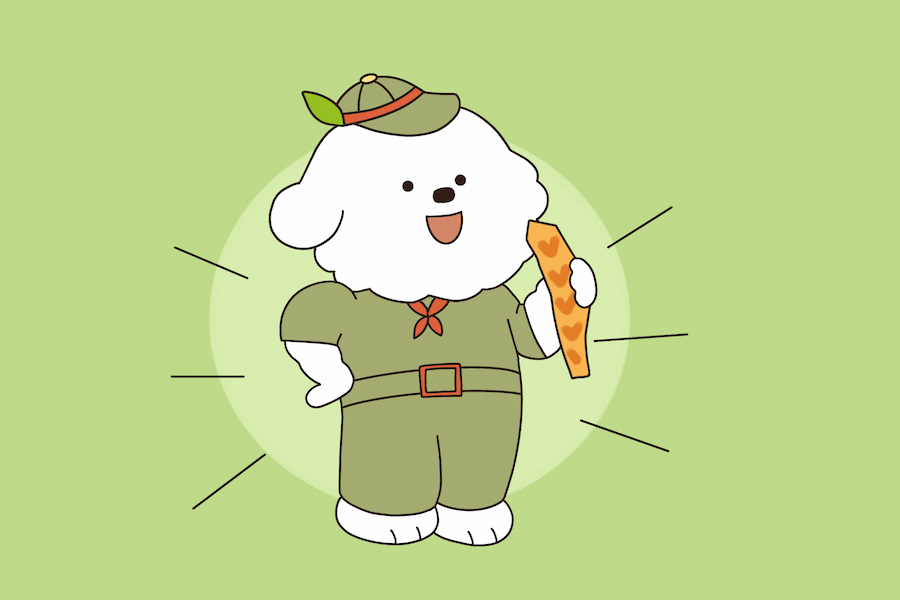Are you preparing the sweet and delicious kabocha squash for yourself, and is your dog looking at you because he wants a piece? But can dogs eat kabocha squash? Yes, dogs can eat kabocha squash, but you should keep in mind some precautions. Kabocha squash, also known as Japanese pumpkin, is rich in vitamins A and C, beta-carotene, dietary fiber, and essential minerals, including calcium and potassium. It benefits your dog’s digestive system, immune system, vision, and skin health.
In this article, I’ll guide you about the safety, benefits, and ways to feed kabocha squash to dogs. I’ll also discuss when kabocha squash is bad for dogs, including allergies, seasonings, and spices. So, without further ado, let’s learn everything you need to know about kabocha squash for dogs.

Lee&Pol offers the best nutritious treats for your dog by combining fresh kabocha squash with desalted dried pollock.
Can Dogs Eat Kabocha Squash?
Yes, dogs can have kabocha squash in moderation. Kabocha squash is not supposed to cause any issues in your dog if you feed it in the recommended amounts and prepare it correctly. Kabocha squash is totally safe for dogs in appropriate amounts, and it even has incredible benefits for dogs. It regulates a dog’s digestive system, strengthens the immune system, and improves vision.
However, some dogs may experience allergies after eating kabocha squash, so starting slowly and offering minimal amounts is necessary. Some dogs can also get an upset stomach because of overfeeding or feeding skins and seeds of kabocha squash. We have only heard about two extreme cases of kabocha squash toxicity. But that may not be because of the kabocha squash; instead, it could be due to other things offered along with kabocha squash. However, you should be careful and introduce kabocha squash slowly to rule out any allergies and keep your dog safe.
Can Dogs Eat Raw Kabocha Squash?
Raw Kabocha squash is not toxic for dogs, but we don’t recommend it. The reason behind this is the hard texture of kabocha squash. Some dogs may not be able to digest the raw kabocha squash efficiently and it may result in digestive issues including bloating, and vomiting. Raw kabocha squash also has a choking risk.
But if you want to offer raw kabocha squash to your dog for any reason, make sure that it is soft enough to be ingested and digested by your dog. We recommend pureeing the kabocha squash if you want to offer it raw to your furry friend.
Can Dogs Eat Cooked Kabocha Squash?
Cooked kabocha squash is excellent for dogs and is highly recommended instead of raw kabocha squash. Cooking the kabocha squash makes it soft and easily digestible for dogs.

And the good news is that cooking kabocha squash doesn’t significantly alter its nutritional value.
You can steam and boil the kabocha squash and then cool it down before offering it to your beloved dog. Most dogs love the taste and texture of cooked kabocha squash.
Is Kabocha Squash Good for Dogs?
Yes, kabocha squash is great vegetable for dogs as it offers excellent benefits. The nutritional composition of kabocha squash shows that it is filled with beneficial vitamins, including vitamins A and C, beta-carotene, dietary fiber, and essential minerals such as calcium and potassium, and is low in calories.
Benefits of Kabocha Squash for Dogs
Kabocha squash is filled with lots of beneficial ingredients. Let’s look at various kabocha squash ingredients and their benefits for our furry friends.
Vitamins
Kabocha squash has excellent quantities of vitamin A and C. Vitamin A plays a significant role in improving the eyesight of your dog and overall cell function. On the other hand, vitamin C makes your dog’s immune system stronger and helps your body repair the tissues.
Both Vitamin A and C are good antioxidants as well. Antioxidants reduce the damage caused by free radicals. Free radicals are compounds responsible for cell damage, including DNA damage.
Beta-carotene
Kabocha squash also has a good quantity of beta-carotene like carrot. Beta carotene is known as a provitamin because it is converted into vitamin A in the dog’s body by the liver. Beta carotene is also beneficial for a dog’s vision and is a strong antioxidant.
Minerals
Essential minerals like potassium and calcium are also abundant in the kabocha squash. Potassium is responsible for maintaining the blood pressure. It is also responsible for the proper muscle functioning. Calcium is responsible for muscle building and healthy bones of a dog’s body. It also contributes to heart health and nervous system health.
Dietary Fiber
Kabocha squash is also well known for its dietary fiber content. Fiber content of kabocha squash is highly beneficial for your dog’s digestive system. Fiber in the kabocha squash regulates your dog’s digestive system. We sometimes even recommend small amounts of kabocha squash for mild stomach upset, including vomiting and diarrhea in dogs.
Kabocha squash is also an excellent choice for obese dogs and those who need to lose a few pounds. The reason behind this is the low-calorie and high-fiber content of kabocha squash. The high fiber content will make your dog feel fuller, allowing you to cut some calories from their meal.
However, always remember that excess of anything is bad for dogs. Dogs should be fed their regular, well-balanced, commercially prepared dog food. Only 10% of a dog’s daily diet can include treats like kabocha squash. So, don’t overfeed the kabocha squash to decrease your dog’s weight; otherwise, you may have to face other issues, including stomach upset, vomiting, and diarrhea.

Lee&Pol presents a nutrient-rich treat for your dog by combining beneficial kabocha squash with dried pollock, enhancing protein content and overall nutrition!
How to Feed Kabocha Squash for Dogs
You have got an answer to your question, “Can Dogs eat kabocha squash?”. Now, let’s find different methods to offer kabocha squash to your dog. You can provide kabocha squash to your dog after cooking. Kabocha squash can be steamed, boiled, or baked for crispy treats. Let’s get into the details:
Steamed
You can steam the kabocha squash for dogs. To steam the kabocha squash for dogs, first cut it into bite-size pieces and remove the seeds and skin. The seeds and skins of kabocha squash are not easily digestible by dogs and pose a choking hazard. You should steam the squash until it becomes soft. After steaming the kabocha squash, let it cool before offering it to your furry friend. Steamed kabocha squash is best for dogs because it is easy to digest.
Boiled
You can also boil the kabocha squash for your dog. Boil it until it is soft and easily digestible for your dog. Ensure there are no seeds and skin before serving it to your dog. Also, make sure it is cool enough. Remember that there should be no use of seasonings and spices, including oil, butter, onion, or garlic powder, because these things are not healthy for dogs, and the latter two are poisonous to dogs. A plain, well-cooked kabocha squash offered in moderation is what we recommend to dog owners.
Mashed
Mashed kabocha squash is another suitable option if your dog doesn’t like bite-sized pieces of boiled or steamed kabocha squash. For this, boil or steam the kabocha squash as mentioned previously and then mash it thoroughly. Then, mix this mashed kabocha squash with your dog’s regular food to make things interesting.
Baked
You can also bake the kabocha squash for your dog to add variety to his diet. For this, start by mixing mashed squash with water and whole wheat flour. Mix these until they form a dough. Then make small treats from this dough and bake them until crispy for your dog.

Lee&Pol freeze-dries only fresh kabocha squash to make a dog treat with no additives, making it safe and healthy for your pet!
When is Kabocha Squash Bad for Dogs?
We know that kabocha squash is filled with beneficial nutrients, including vitamins, antioxidants, and dietary fiber. All these things are beneficial for dogs. But kabocha squash can also be harmful to your dog in some conditions. The issues include digestive problems, allergies, and toxicities.
Digestive Issues
Kabocha squash is beneficial for dogs only in moderation. A teaspoon of kabocha squash mixed in meals is best for small dog breeds. While large dog breeds can have up to one tablespoon of kabocha squash. Feeding more than this recommended amount can create issues for your dog. Excessive quantities of kabocha squash can cause stomach upset and lead to vomiting and diarrhea in some cases.
Your dog doesn’t know the safe quantities of kabocha squash. He may long for more, but as a responsible pet owner, you should never offer him more than the recommended amount to keep him healthy. And we know that a healthy pet is a happy pet.
Allergy
Kabocha squash allergies in dogs are rare, so you should keep them in mind when feeding kabocha squash for the first time. When introducing kabocha squash, start slowly and offer minimal amounts to rule out any allergies. If you observe any signs like dullness and depression, gastrointestinal distress, drooling, skin irritation, facial swelling or lips licking then immediately stop offering kabocha squash to your dog. Also, monitor your dog for a few hours.

If you observe any neurological signs after feeding kabocha squash, such as excessive salivation, tremors, increased breathing, or lack of coordination, immediately take your dog to the vet.
Seasonings and Spices
The nutritional benefits of kabocha squash are only valid if it is offered plain and prepared without any added seasonings or spices like salt or sugar. These may include oil or butter, which are not healthy for dogs. You may prepare kabocha squash for yourself with onion or garlic powder, but it’s a big no for your dog because both onion and garlic are extremely toxic to dogs. Always offer plain, well-cooked kabocha squash in moderation.
Conclusion
Kabocha squash is safe for dogs and offers excellent nutritional benefits. This kabocha squash is low in calories and filled with vitamins A and C, beta-carotene, essential minerals including calcium and potassium, and dietary fibers. These nutrients benefit a dog’s digestive and immune systems, bones, muscles, and vision.
You can feed your dog steamed, boiled, mashed, or baked kabocha squash. However, raw kabocha squash is not suitable for dogs. Additionally, feeding appropriate quantities of kabocha squash in moderation is very important. Overfeeding can result in digestive issues.
FAQ
A teaspoon of kabocha squash is safe for small dogs, while up to a tablespoon can be offered to medium and large dogs. Don’t offer your dog kabocha squash more than this recommended quantity; otherwise, your dog may face issues like an upset stomach, vomiting, or diarrhea.
Kabocha squash seeds are not toxic to dogs. However, they pose a choking risk for small dogs and are not easily digestible. That’s why you should avoid the seeds of the kabocha squash.
The kabocha squash skin is usually hard and shouldn’t be given to dogs. Kabocha squash skin is not easily digestible and is a choking hazard, so it should be avoided.
Yes, dogs can eat dried kabocha squash. Ensure that dried kabocha squash is plain and prepared without any seasonings. Offering dried kabocha squash in moderation is essential because excessive quantities of dried kabocha squash are not healthy for dogs. Also, cut the dried kabocha squash into bite-size pieces for easy chewing and digestion.
It is not recommended to feed kabocha squash to dogs every day, as it can cause digestive upset. As a veterinarian, I recommend feeding well-cooked kabocha squash without seeds and skins two to three times a week. Also, keep in mind that moderation is the key. Don’t overfeed the kabocha squash, as it can cause issues.
Yes, kabocha Squash is helpful for a dog’s digestion. The reason behind this is the high quantity of dietary fibers found in the kabocha squash. Dietary fibers are responsible for regulating the digestive system and can also help with mild vomiting and diarrhea in dogs.



